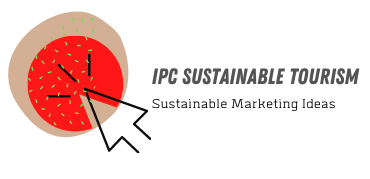Formazione Aziendale are a great way to train employees and improve team-building and communications. They can also be helpful in developing initiatives, plans and processes that meet business and organizational goals.
A successful workshop should be interactive. The facilitator should avoid talking too much and encourage dialogue with attendees. In addition, the workshop should use the Socratic method to ensure that all questions are answered.
Personalized learning is an educational approach that aims to customize instruction to meet each student’s unique needs and interests. It involves focusing on students’ strengths, weaknesses and innate curiosity and using learning technologies to provide them with choices about the format, mode of instruction, pace and content. It also focuses on engaging students as active producers of knowledge rather than simply consumers, and it gives them an opportunity to learn how to engage with their own learning.
Personalization can be a challenge to implement in schools, but it is an important goal for educators and school administrators to pursue. One way to do this is by bringing in outside experts to run workshops that are relevant and relatable for students. In a self-leadership workshop, for example, students can learn about tools they can use to harness their own leadership abilities and take on responsibilities in an effective way.
A successful workshop requires a clear set of objectives, and it is crucial to establish the expectations for participants before the event begins. It’s also important to consider the resourcing requirements of the event, with the number of participants likely to impact how much space and resources are required.
Workshops can be a great way to develop employees and build teams. They can also help to break down barriers between departments and improve communications across an organisation. They can also be used to create initiatives, plans, processes and actions that will achieve business and organizational improvement, such as implementing a new project or managing change. Workshops can be especially useful for building team-building skills and providing training on how to deal with difficult situations. They can also be useful for introducing employees to new systems and procedures and integrating staff following an acquisition or merger. These benefits can be even greater if the workshop is led by an external facilitator who can bring a fresh perspective to the proceedings and inspire the participants to learn more. This is why it’s important to choose a skilled and experienced facilitator to lead the workshop. This will ensure that the attendees get the most value from the experience.
Relevant Content
When choosing the topic for your corporate workshop, you should choose a subject that is relevant to your employees’ everyday life. This way, they will be more receptive to the content and are more likely to retain information learned during the event. Moreover, workshops should align with your organisational values. For example, if your organisational values include teamwork and collaboration, you should incorporate activities that promote these qualities in the workshop.
The content of a workshop should also be engaging and thought-provoking to keep the attendees interested. Incorporating interactive activities, group discussions, and Q&A sessions can help participants engage in the workshop’s topic. This will also help participants develop relationships with one another and create a positive learning environment.
Lastly, it’s crucial to gather feedback from the attendees after the workshop. This will allow you to evaluate the effectiveness of the workshop and make necessary improvements. Be sure to encourage attendees to share both positive and negative feedback so that you can address any areas where the workshop could be improved.
One of the most important factors in a successful workshop is having an effective facilitator. A good facilitator will set the tone for the workshop and guide the participants towards its objectives. They should be knowledgeable and experienced in the field of wellbeing. They should also have excellent communication and organisational skills.
In addition to having an effective facilitator, it’s important to have the right tech equipment and a dedicated tech support team to ensure that all technical issues are addressed in a timely manner. This will ensure that the workshop runs smoothly and leaves a positive impression on the attendees.
Effective Activities
If you’ve ever been to a meeting or workshop where nothing gets accomplished and the conversation keeps going in circles, it may be because there is little alignment between attendees around the purpose of the workshop. In such cases, it is important to bring in a workshop facilitator who can provide clear objectives and guide the discussion. These skilled professionals can help businesses create productive workshops that foster collaboration and problem-solving.
Workshop activities can include brainstorming sessions that encourage creativity and innovation, or teambuilding exercises that promote the development of strong leadership skills. They can also address common problems that are faced in teams, such as communication issues, lack of trust, or a resistance to change.
A well-designed workshop will include a mix of stakeholders who have a unique perspective on the topic at hand, as they will approach the problem differently. This helps to ensure that all aspects of the problem are considered, which can lead to solutions that are more effective.
It is also crucial to incorporate effective feedback mechanisms in a workshop. This includes methods like the ‘Start, Stop, Continue’ exercise and anonymous online platforms that facilitate constructive criticism and growth-oriented dialogue. By using these tools, a workshop can increase the quality of its outcomes and enhance learning experiences for all participants.
Finally, a workshop will incorporate fun and engaging activities that can build team spirit and reinforce key takeaways. For example, a workshop on leadership can include a Marshmallow Tower Challenge to inspire collaboration and creative thinking, while one on teamwork might include the Strengths Finder assessment to help participants identify their strengths and learn how to leverage them in collaborative efforts. In addition, a workshop can include networking sessions that allow attendees to connect informally and establish long-term connections.
